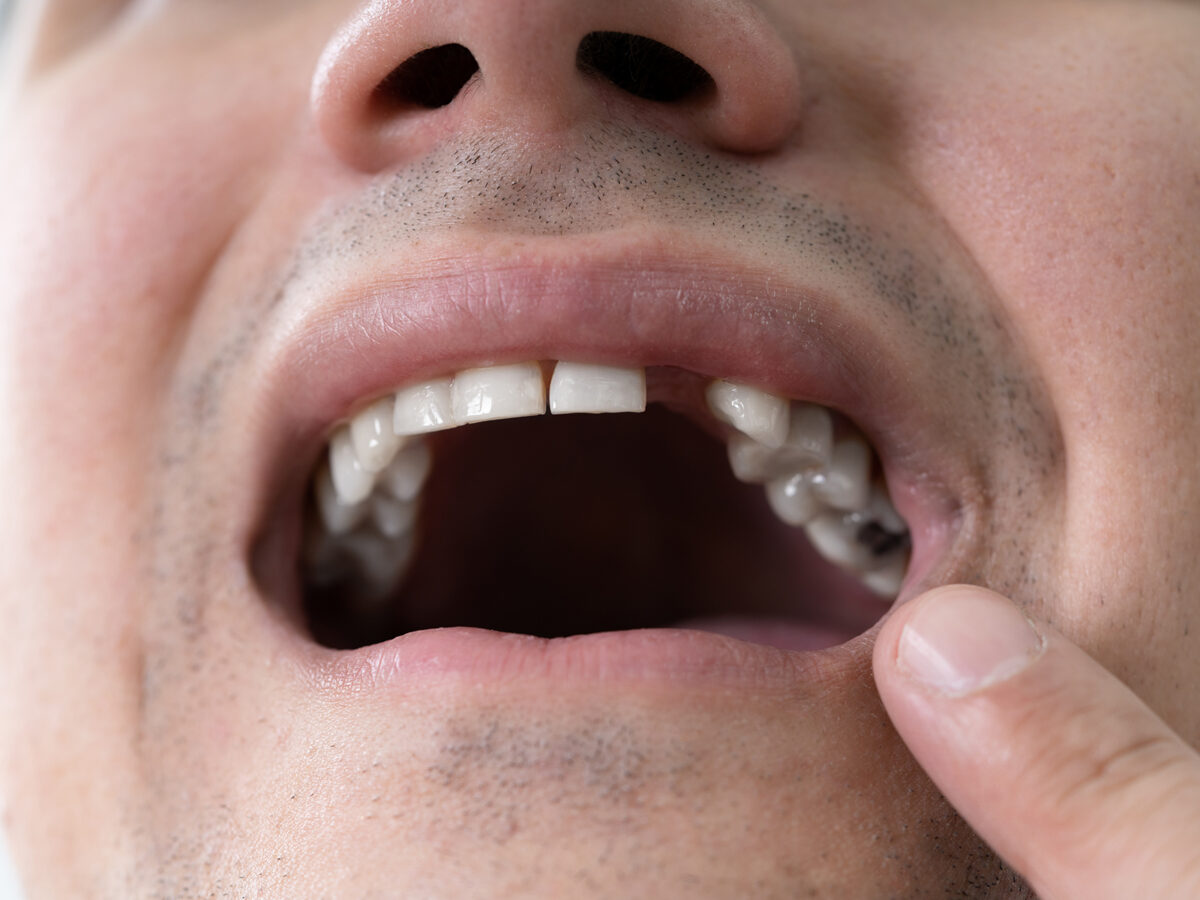Blog
Dental hygiene tips for healthy teeth & gums

What Are The Best Solutions For A Missing Tooth?
Missing teeth are teeth that are not present in the mouth. Tooth decay, gum disease, injury, and congenital factors can all cause missing teeth. Congenitally missing teeth occur due to genetic factors and can run in families. The teeth that are frequently absent or missing are the wisdom teeth, upper lateral incisors, and second premolars/bicuspids.
The loss of a tooth can stem from various sources, including genetic factors and systemic disorders. For individuals with congenitally missing teeth linked to this condition, timely dental evaluation is crucial. A prosthodontist can provide a comprehensive approach, addressing the dental problems associated with missing teeth.
The absence of a tooth can trigger multiple issues, such as:
- Compromised chewing and decreased swallowing proficiency
- Dietary imbalance and inadequate consumption
- Perceived self-image and esteem
- Disrupted tooth alignment
- Bone loss and deterioration
- Weakened jaw muscles
- Further tooth loss, decay, and dental problems
Best Solutions For A Missing Tooth
Oral health care for missing teeth is crucial, and due to its prevalence, various solutions are available to restore a healthy and radiant smile. In addition to traditional approaches, modern dental and endodontic treatments are available to fix this issue. Outlined below are some highly efficient remedies for missing teeth.
- The most favored approach for replacing missing teeth is through the use of dental implants. A metal post is inserted into the jawbone to fuse with the implant, resulting in a natural-looking and comfortable tooth replacement. Dental implants are a viable option for the replacement of one or more missing teeth.
- Dentures are custom-made and are an excellent solution for multiple missing teeth. They fit perfectly in your mouth, providing a natural-looking smile. Dentures can also be made for an individual missing tooth.
- Complete dentures can help replace an entire set of teeth, and partial dentures can replace only a few missing teeth. Partial dentures consist of replacement teeth attached to a pink base that matches your gums, with natural teeth stabilizing the plastic base. These dentures may have clasps for additional support and are a good option if you need to replace multiple teeth in one area.
- Dental crowns and bridges are other options. Crowns are tooth-shaped caps that cover partially missing teeth or implants, while bridges use connected crowns to fill the gap left by completely missing teeth. There are various materials available for dental crowns and bridges.
- Bonding is a temporary but long-lasting solution that can fix partially missing teeth, such as chipped or cracked teeth. Bonding can be completed in a single visit and provides a natural look and feel at a lower price than porcelain veneers.
- Porcelain veneers are thin porcelain shells bonded to the front of a tooth to improve or match the existing smile. Porcelain veneers are customized and can last for decades with proper care. They are an excellent option for partially missing teeth.
- A flipper is a form of temporary partial denture that can be easily inserted and removed. Unlike traditional partial dentures, it lacks metal clasps and doesn’t rely on surrounding teeth. One advantage of using a flipper is that it offers an affordable and painless solution to replace a missing tooth.
Numerous remarkable solutions exist for replacing a lost tooth, regardless of whether it was due to trauma, gum disease, or decay. These solutions come with their own set of advantages and disadvantages, which a dental expert can assist you in evaluating based on your individual requirements and financial plan.
A professional consultation with a licensed dentist is the best way to determine the optimal solution for tooth replacement. It is recommended that patients arrange for a consultation visit to receive personalized recommendations on how to restore their smile. During the consultation, the patient can ask questions and receive expert advice.
Regular dental checkups and cleanings are essential to prevent oral health issues such as missing teeth from arising. However, remember that maintaining oral hygiene is not limited to the dentist’s office alone. Adopt a healthy routine of brushing and flossing daily, and follow a nutritious diet to keep your teeth in robust shape.
